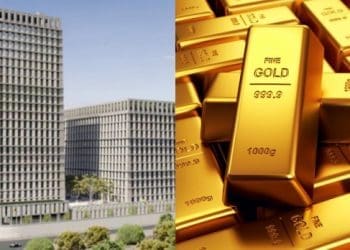Fuel prices across Ghana have seen a steep rise of nearly 10% from July 16, 2025, following the implementation of a new GH₵1 levy on every litre of petroleum products, introduced as part of government efforts to address ballooning energy sector debts.
The new tax, which came into effect in the second week of July 2025, has triggered price hikes across all major oil marketing companies (OMCs), reigniting public discontent over the high cost of living.
Prices climb across the board
Price revisions from leading OMCs reveal significant increases compared to the previous pricing window, between July 2 and 15, 2025.
StarOil
At StarOil stations, the price of petrol surged from GH₵10.99 to GH₵12.59 per litre, while diesel climbed from GH₵12.99 to GH₵13.99.
The company’s premium product, RON, also rose from GH₵13.99 to GH₵14.99.
GOIL
GOIL, the state-owned petroleum retailer, adjusted petrol prices upward from GH₵12.07 to GH₵12.88.
Diesel increased sharply from GH₵13.20 to GH₵14.38, and Super XP 95 leapt from GH₵14.34 to GH₵15.77 per litre.
Shell
Shell, operated by Vivo Energy Ghana, similarly increased prices. Petrol now sells at GH₵13.29, up from GH₵12.08, while diesel rose from GH₵13.25 to GH₵14.49.
Shell’s V-Power premium fuel also jumped from GH₵14.25 to GH₵15.29.
The roughly 10% upward adjustment in prices is being directly attributed to the GH₵1 per litre levy, which applies to petrol, diesel, and other petroleum-based products used in transportation, industry, and household energy.
Debt-relief levy targets $2.5bn energy arrears
The surcharge is part of a broader fiscal strategy to rescue Ghana’s ailing energy sector, which is burdened with debts exceeding $2.5 billion.
The Ministry of Finance estimates that the new levy will rake in GH₵5.7 billion annually.
These funds will be channeled to key state energy agencies, including the Volta River Authority (VRA), Ghana Grid Company (GRIDCo), and Electricity Company of Ghana (ECG).
Most of these agencies are heavily indebted to Independent Power Producers (IPPs) and bulk oil distributors, some of whom have threatened to halt supplies unless their arrears are paid.
The levy is part of the Energy Sector Recovery Programme, a component of Ghana’s wider economic reform agenda aimed at averting power outages and restoring credibility within the sector. It supplements existing taxes such as the Energy Sector Recovery Levy, the Price Stabilisation and Recovery Levy, and the Energy Sector Levy Act (ESLA) introduced in 2015.
Backlash over timing and economic burden
Despite the urgency of addressing energy sector debts, the implementation of the levy has drawn sharp criticism from civil society groups, opposition lawmakers, labour unions, and transport associations.
Passed under a certificate of urgency in Parliament, the new fuel tax has been condemned as insensitive and burdensome, especially in a context of rising food prices, stagnant wages, and global economic instability.
Critics argue that the government is forcing ordinary citizens to pay for policy missteps and overpriced power contracts signed over the years.
Fare increases on the horizon
With fuel prices up nearly 10%, commercial transport operators are threatening 30% fare hikes in the coming weeks, triggering a ripple effect on food, goods, and services.
Some urban commuters in Accra and Kumasi are already bracing for new rates, as the cost of running trotros, taxis, and delivery vehicles escalates.
Economic analysts warn that the fuel levy could push inflation upward, particularly as Ghana is still recovering from previous energy price shocks and exchange rate volatility.
Govt defends tough decision
Government spokespersons have defended the fuel levy as a difficult but necessary measure to stabilise the energy sector and avoid systemic collapse.
They maintain that without this intervention, the energy supply chain could face operational paralysis, leading to power rationing, blackouts, and further economic contraction.
The Finance Ministry also believes the levy will help Ghana meet key reform benchmarks under the IMF-supported Post-COVID-19 Programme for Economic Growth (PC-PEG).












